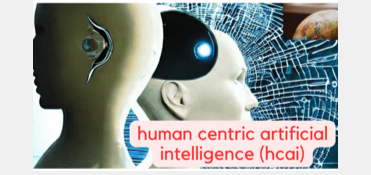This article presents a hypothetical job recruitment scenario which may not be far from becoming a reality. It constitutes one case of ethical violation by PAI models.
Ethics is about fairness, equal opportunity, integrity, upholding morality, respecting human rights, privacy and ownership. Imagine a scenario where there is a job opening in a company and you are applying for that job. There are 100 candidates for the same job. This is commonplace in countries with a large population.
Candidates approach HR agencies to create their own PAI models. There is no way to ascertain how correct, unbiased or holistic these AI models are in predicting candidates’ work performance. The creation of PAI models is subject to model biases, manipulation and unethical practices. The personal data based on which the AI model was trained could be manipulated or fake. There is no way to determine the truth and the quality of these PAI models. There are also no laws specifically governing such PAI model creation with adequate security architectures. With the advance of technology, the old dependable system of curriculum vitae has been dispensed with.
The HR agencies rent out PAI models of its candidates to the company offering the job for a fee. The agencies and companies claim that the AI use case can evaluate and predict the candidate’s performance without the candidate ever appearing for any interview or written test. Only the top 10 candidates who are selected by the AI model-based evaluation are called for the interview and written exam at the company’s premises. You have been eliminated by an AI model along with the other 89 candidates without any human judgement involved. The top 10 candidates are also subjected again to PAI modelling for final candidate selection.
Before this AI age, you had a chance to sit face to face and recount your work experience and answer questions based on your CV. The selector could observe you and your body language and communication was natural between human beings with the involvement of eyes, other senses and cues. This provided an opportunity for truth and talent to be recognized using human senses and intelligence. That opportunity is now getting lost in the murkiness of PAI models. A similar effort by Amazon to automate CV processing was rolled back by the company due to bias against female candidates.
Is this an ethical practice? Does it give the people fair opportunity for employment? Should we hand over essentially human HR selection processes which were fact based, logical, conversational and face to face to algorithmic evaluation by an AI model which is a black box, untested, possibly manipulated and un-certified? What would such an approach do to our job prospects?
PAI modelling violates the fundamental and human rights laws and constitutions of all civilized nations. Yet those very same nations have not yet banned PAI modelling till such time a technology-based solution has been implemented. A technology solution for PAI modelling has been proposed by the author.
National laws governing PAI processing should be enacted urgently to protect citizens. Having explored other options, the author is convinced that is only possible on popular citizen’s demand.
Follow link

2 thoughts on “Personal AI Models (PAI) – An ethical violation of AI modelling people”
Comments are closed.